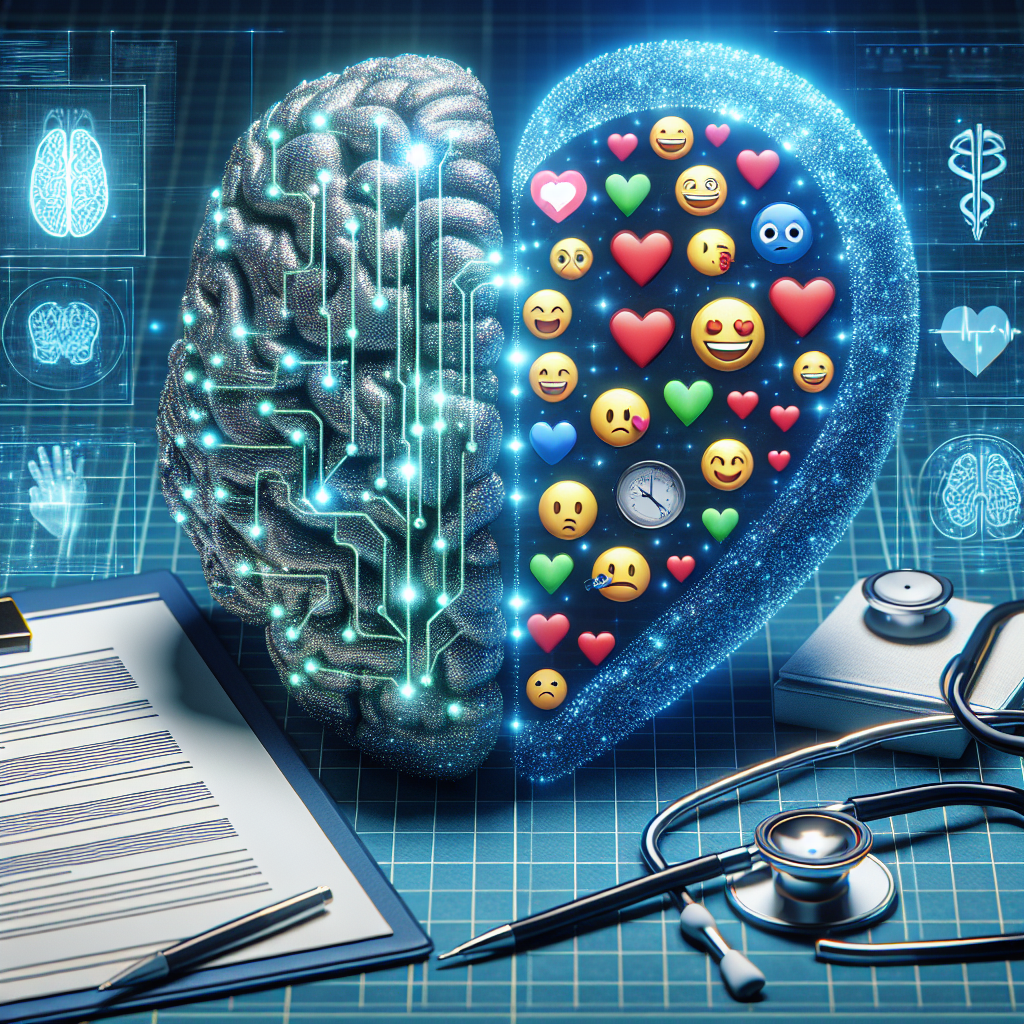Artificial intelligence (AI) is revolutionizing many industries, and one area where it has the potential to make a significant impact is in the field of mental health. By harnessing the power of AI and emotional analysis, healthcare professionals can enhance the diagnosis and treatment of mental health disorders, leading to more effective and personalized care for patients.
AI and Emotional Analysis in Mental Health Diagnosis
Diagnosing mental health disorders can be a complex and challenging process, as symptoms can vary widely among individuals and may be influenced by a variety of factors. AI technologies, such as machine learning algorithms, can help clinicians more accurately identify and classify mental health conditions by analyzing patterns in large datasets of patient information.
One of the key advantages of AI in mental health diagnosis is its ability to process and analyze vast amounts of data quickly and efficiently. By examining a patient’s medical history, symptoms, and other relevant factors, AI algorithms can identify patterns and trends that may not be immediately apparent to human clinicians. This can lead to more accurate and timely diagnoses, allowing patients to receive the appropriate treatment sooner.
In addition to aiding in the diagnosis of mental health disorders, AI can also help healthcare professionals better understand the underlying causes of these conditions. By analyzing data from a variety of sources, such as genetic information, brain imaging scans, and patient surveys, AI algorithms can identify patterns and correlations that may shed light on the biological, psychological, and environmental factors contributing to mental illness.
Emotional analysis is another important tool that can enhance the diagnostic process in mental health care. By analyzing a patient’s speech patterns, facial expressions, and other nonverbal cues, AI technologies can provide valuable insights into their emotional state and mental well-being. This information can help clinicians better understand their patients’ thoughts and feelings, leading to more personalized and effective treatment plans.
AI and Emotional Analysis in Mental Health Treatment
Once a mental health disorder has been diagnosed, AI and emotional analysis can also play a crucial role in guiding treatment decisions and monitoring patient progress. By analyzing data from ongoing therapy sessions, medication adherence rates, and other relevant factors, AI algorithms can provide valuable feedback to clinicians on the effectiveness of treatment interventions.
For example, AI-powered chatbots can be used to deliver cognitive behavioral therapy (CBT) to patients outside of traditional therapy sessions. These chatbots can engage with patients in real-time, providing support, guidance, and feedback based on their responses. By analyzing the conversations between patients and chatbots, AI algorithms can identify patterns in the patient’s thought processes and emotional states, allowing for more personalized and effective treatment.
In addition to providing support during therapy sessions, AI can also help healthcare professionals monitor patient progress and adjust treatment plans as needed. By analyzing data from wearable devices, such as smartwatches and fitness trackers, AI algorithms can track changes in a patient’s physical activity, sleep patterns, and other behaviors that may be indicative of their mental health status. This information can help clinicians identify early warning signs of relapse or treatment resistance, allowing for timely intervention and adjustment of treatment strategies.
FAQs
Q: How does AI and emotional analysis improve mental health diagnosis and treatment?
A: AI technologies, such as machine learning algorithms, can analyze vast amounts of patient data to identify patterns and trends that may not be immediately apparent to human clinicians. By examining a patient’s medical history, symptoms, and other relevant factors, AI algorithms can provide more accurate and timely diagnoses, leading to more personalized and effective treatment plans. Emotional analysis can also provide valuable insights into a patient’s emotional state and mental well-being, helping clinicians better understand their thoughts and feelings.
Q: Are there any risks or limitations associated with using AI in mental health care?
A: While AI has the potential to greatly enhance mental health diagnosis and treatment, there are also risks and limitations to consider. For example, AI algorithms may be biased or inaccurate if they are trained on biased or incomplete datasets. Additionally, there are concerns about patient privacy and data security when using AI technologies to analyze sensitive mental health information. It is important for healthcare professionals to carefully evaluate the reliability and ethical implications of using AI in mental health care.
Q: How can patients benefit from AI and emotional analysis in mental health care?
A: Patients can benefit from AI and emotional analysis in mental health care in several ways. By providing more accurate and timely diagnoses, AI technologies can help patients receive the appropriate treatment sooner, leading to improved outcomes. Emotional analysis can also help patients better understand and manage their emotions, leading to increased self-awareness and emotional well-being. Additionally, AI-powered tools, such as chatbots and wearable devices, can provide ongoing support and feedback to patients outside of traditional therapy sessions, enhancing the overall quality of care.
In conclusion, AI and emotional analysis have the potential to revolutionize the field of mental health care by enhancing diagnosis and treatment through the analysis of vast amounts of data and nonverbal cues. By harnessing the power of AI technologies, healthcare professionals can provide more accurate and personalized care to patients with mental health disorders, leading to improved outcomes and quality of life. However, it is important for clinicians to carefully evaluate the reliability and ethical implications of using AI in mental health care to ensure the safety and well-being of their patients.

